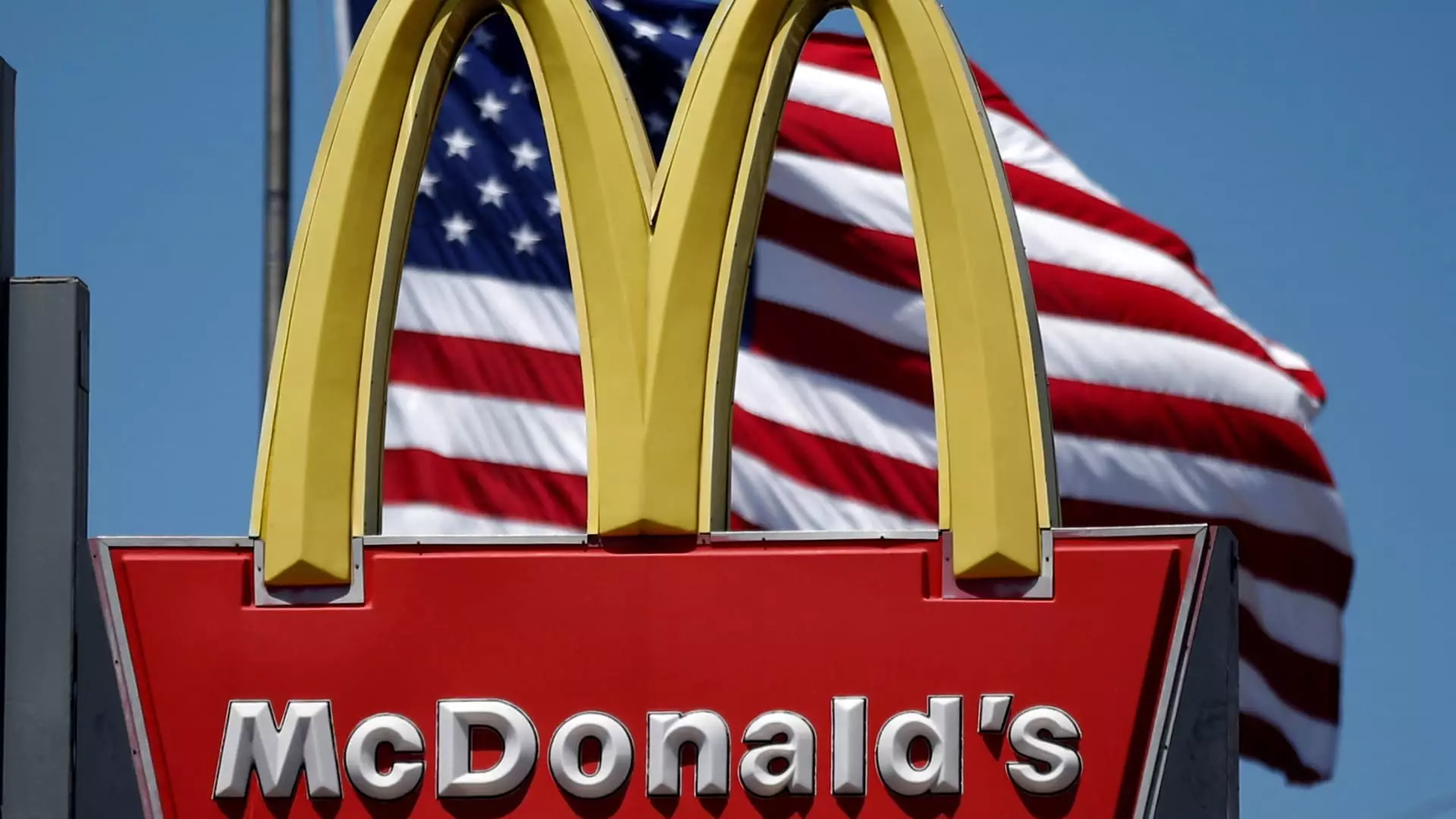As McDonald’s gears up to release its first-quarter earnings, analysts’ skepticism looms large. While projections peering out through the fog suggest an earnings per share (EPS) of $2.66 and revenues touching $6.09 billion, the reality on the ground presents a troubling picture. The iconic fast-food chain, often seen as a barometer for consumer health, has witnessed declining sales in recent quarters—particularly alarming in its core U.S. market. This harbinger of disappointing figures further entrenches the notion that even industry giants can stumble.
Impacts of Contamination and Consumer Caution
A particularly unsettling development that casts a shadow over McDonald’s performance is the E. coli outbreak that occurred last October. Such incidents engender fear among consumers, leading to discernible shifts in dining habits. While some may argue that fast food is often a refuge during hard times, the adverse effects of food safety concerns can trigger long-standing caution among patrons, especially when combined with a broader economic downturn.
Additionally, CFO Ian Borden has candidly labeled the first quarter as a low point for same-store sales. This admission, paired with decreasing consumer confidence amid trade tensions and the specter of recession, raises alarm bells. By failing to address these foundational issues, McDonald’s risks undermining its brand reputation, which is often built on nostalgia, reliability, and comfort.
Strategies Amid Struggles: Is It Enough?
In response to looming adversity, McDonald’s has committed itself to experimental strategies such as reintroducing its snack wraps and focusing on value meals. Yet, it feels reminiscent of a band-aid over a gaping wound. Substantial shifts in consumer behavior demand a more profound and strategic intervention rather than whimsical menu changes. While ‘value’ has always been a selling point, the question remains whether it is viable amid climbing operation costs and wage increases.
Moreover, it’s essential to weigh the effectiveness of these strategies against their growers. While they may provide a temporary boost, they can hardly serve as a panacea for underlying systemic issues. What’s needed is not just value snacks, but a revamped approach to redefine the consumer experience in light of modernity.
The Role of Market Sentiment
Interestingly, despite these challenges, shares of McDonald’s have increased by a notable 15% thus far this year, inflating its market value close to $26 billion. One could argue this suggests a disconnect between stock performance and operational reality. Investors may be buoyed by a sense of optimism rooted in the nostalgic brand identity or by motivated analysts trying to stave off panic. But such optimism often builds on shaky foundations.
Ultimately, if consumers feel the pinch—brought on by trade wars and declining confidence—they will likely tighten their belts, leading to disappointing returns for the fast-food giant. The resilience of a company does not stem from its past glory but rather from its ability to adapt to the immediate socio-economic environment, which presently, McDonald’s seems woefully ill-equipped to do.
As the earnings report approaches, the dance between expectation and reality will be laid bare, leaving many to wonder whether McDonald’s can stretch its golden arches through this trying time, or if they will once again hit the ground.

